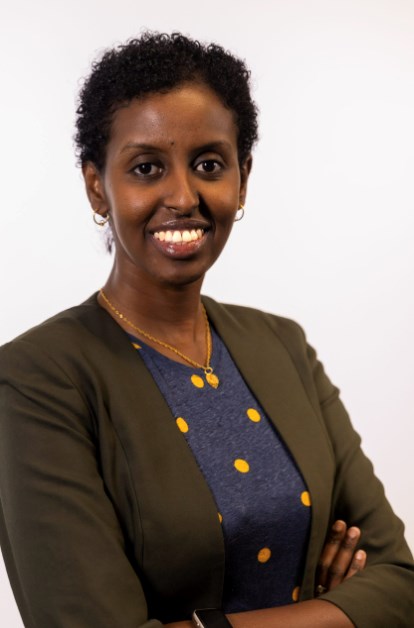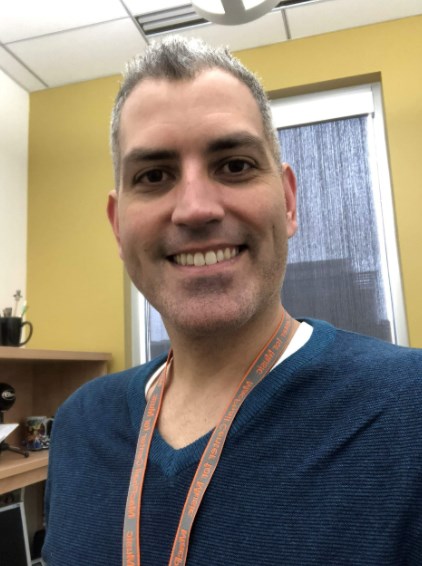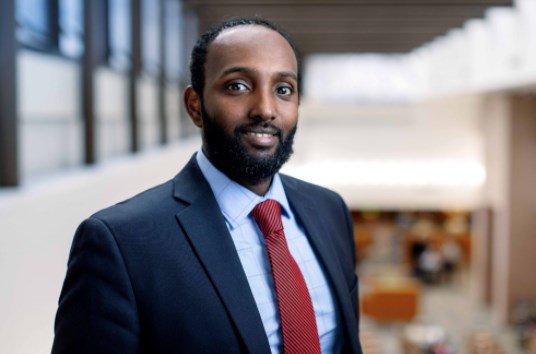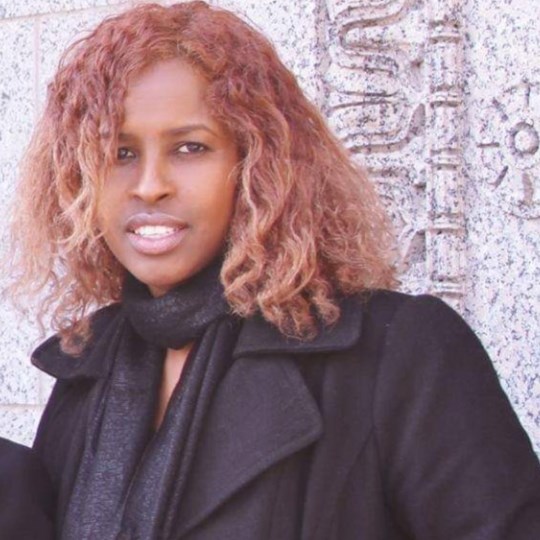- Joined
- Jan 9, 2019
- Messages
- 23,783
- Reaction score
- 10,576
This year's fellows are working to make public health, music education and clinical research more equitable

2020 Bush Foundation Fellows will receive up to $100,000 to create equity and inclusion in their fields Credit: The Bush Foundation
Four Minnesota residents from immigrant backgrounds received the 2020 Bush Foundation fellowships to create more equity and inclusion in their respective fields.
Fellows receive up to $100,000 for a one-to-two year period to conduct a project and develop skills to become effective, equitable leaders. Twenty-four fellows were selected from a pool of 746 applicants.
“The Bush Foundation believes that strong and equitable leaders are necessary for our communities to be places where every person can thrive,” said Bush Foundation Leadership Programs Director Anita Patel in a statement. “These 24 Fellows have demonstrated tremendous capacity to lead change, and we believe in their potential to make an even greater difference.”
The four new fellows are:
Amira Adawe
Amira Adawe is a public health researcher and the founder of The Beautywell Project. An immigrant from Somalia, Adawe currently lives in Saint Paul. As a Bush Fellow, she will continue to end skin-lightening practices that expose people to toxic chemicals and encourage harmful beauty standards.

Amira Adawe Credit: The Bush Foundation
“It’s deeply rooted in colonization,” Adawe said of colorism. She added that colorism has become so deeply rooted in African, Asian and Latino culture, that some people now use skin-lightening creams three to four times per day.
After nine years leading the effort against skin-lightening, Adawe will study marketing strategies of skin-lightening products at the global level. She recently led a successful effort to stop Amazon from selling skin-lightening creams.
“I want to create a coalition of organizations globally to work on this issue so we collectively end colorism,” Adawe said.
Roque Diaz
Roque Diaz is the director of school partnerships at MacPhail Center for Music. Diaz is completing his Ph.D. study of two arts organizations working toward equity and inclusion at the University of Minnesota.

Roque Diaz Credit: The Bush Foundation
“Growing up as a first-generation Hispanic,” Diaz said. “I was able to travel and perform professionally. And during that time I really noticed that there were not, in my field, people who looked like me.”
As an immigrant from Puerto Rico, Diaz has been researching ways to make music education more inclusive and culturally diverse.
“This topic’s been addressed for hundreds of years,” Diaz said of his research. “But why hasn’t anything changed?”
As a Bush Fellow, Diaz will also research successful initiatives and will incorporate them into his own practice, while also learning from other music educators from minority backgrounds.
Dr. Essa Mohamed
Dr. Essa Mohamed, Mayo Clinic researcher, will aim to improve health outcomes as a Bush fellow by increasing the number of women and people of racial and ethnic minorities who participate in clinical trials.

Dr. Essa Mohamed Credit: The Bush Foundation
Until recently, guidelines for medical professionals were mostly based on research collected from East Asia and Northwest Europe, according to Mohamed.
Mohamed will work with clinicians and business executives to better involve women and minorities when developing new medical devices, too.
“Everything that we do has to have a lens, in which we look at sex differences, as well as racial ethnic differences,” Mohamed said.
Mohamed studied the prevalence of liver disease in African and Asian people to better understand underrepresentation in medical research. His findings helped lead the World Health Organization to prioritize hepatitis at a global level. He also helped change patient screenings at Mayo Clinic.
Farhio Khalif
Farhio Khalif, from Maple Grove, founded Voices of East African Women, the first shelter in the U.S. for East African and Muslim women who experience homelessness or domestic and sexual assault.

Farhio Khalif Credit: The Bush Foundation
As a Bush Fellow, Khalif will pursue a master’s degree in public health and policy to enhance her English storytelling skills while seeking mentorship with local policy makers.

2020 Bush Foundation Fellows will receive up to $100,000 to create equity and inclusion in their fields Credit: The Bush Foundation
Four Minnesota residents from immigrant backgrounds received the 2020 Bush Foundation fellowships to create more equity and inclusion in their respective fields.
Fellows receive up to $100,000 for a one-to-two year period to conduct a project and develop skills to become effective, equitable leaders. Twenty-four fellows were selected from a pool of 746 applicants.
“The Bush Foundation believes that strong and equitable leaders are necessary for our communities to be places where every person can thrive,” said Bush Foundation Leadership Programs Director Anita Patel in a statement. “These 24 Fellows have demonstrated tremendous capacity to lead change, and we believe in their potential to make an even greater difference.”
The four new fellows are:
Amira Adawe
Amira Adawe is a public health researcher and the founder of The Beautywell Project. An immigrant from Somalia, Adawe currently lives in Saint Paul. As a Bush Fellow, she will continue to end skin-lightening practices that expose people to toxic chemicals and encourage harmful beauty standards.

Amira Adawe Credit: The Bush Foundation
“It’s deeply rooted in colonization,” Adawe said of colorism. She added that colorism has become so deeply rooted in African, Asian and Latino culture, that some people now use skin-lightening creams three to four times per day.
After nine years leading the effort against skin-lightening, Adawe will study marketing strategies of skin-lightening products at the global level. She recently led a successful effort to stop Amazon from selling skin-lightening creams.
“I want to create a coalition of organizations globally to work on this issue so we collectively end colorism,” Adawe said.
Roque Diaz
Roque Diaz is the director of school partnerships at MacPhail Center for Music. Diaz is completing his Ph.D. study of two arts organizations working toward equity and inclusion at the University of Minnesota.

Roque Diaz Credit: The Bush Foundation
“Growing up as a first-generation Hispanic,” Diaz said. “I was able to travel and perform professionally. And during that time I really noticed that there were not, in my field, people who looked like me.”
As an immigrant from Puerto Rico, Diaz has been researching ways to make music education more inclusive and culturally diverse.
“This topic’s been addressed for hundreds of years,” Diaz said of his research. “But why hasn’t anything changed?”
As a Bush Fellow, Diaz will also research successful initiatives and will incorporate them into his own practice, while also learning from other music educators from minority backgrounds.
Dr. Essa Mohamed
Dr. Essa Mohamed, Mayo Clinic researcher, will aim to improve health outcomes as a Bush fellow by increasing the number of women and people of racial and ethnic minorities who participate in clinical trials.

Dr. Essa Mohamed Credit: The Bush Foundation
Until recently, guidelines for medical professionals were mostly based on research collected from East Asia and Northwest Europe, according to Mohamed.
Mohamed will work with clinicians and business executives to better involve women and minorities when developing new medical devices, too.
“Everything that we do has to have a lens, in which we look at sex differences, as well as racial ethnic differences,” Mohamed said.
Mohamed studied the prevalence of liver disease in African and Asian people to better understand underrepresentation in medical research. His findings helped lead the World Health Organization to prioritize hepatitis at a global level. He also helped change patient screenings at Mayo Clinic.
Farhio Khalif
Farhio Khalif, from Maple Grove, founded Voices of East African Women, the first shelter in the U.S. for East African and Muslim women who experience homelessness or domestic and sexual assault.

Farhio Khalif Credit: The Bush Foundation
As a Bush Fellow, Khalif will pursue a master’s degree in public health and policy to enhance her English storytelling skills while seeking mentorship with local policy makers.
